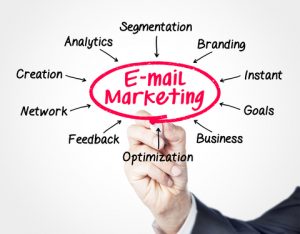Account-based marketing (ABM) is a targeted marketing strategy. Using ABM, marketers focus on the best way to engage an individual or company, rather than taking a generic approach.
ABM is a popular strategy among B2B lead generation and sales teams, especially those who target larger companies and high-value accounts. Through personalised messaging and campaigns based on the specific needs and characteristics of each particular account, marketers have a better chance of success compared to generic marketing efforts.
In fact, research by ITSMA found that a massive 87% of marketers said that ABM outperformed other marketing efforts in terms of Return on Investment (ROI). And a further 92% of B2B marketers told researchers from SiriusDecisions that ABM was ‘extremely important’ to their overall marketing efforts.
How ABM works
Account-based marketing turns the traditional marketing funnel on its head. Instead of attracting as many leads as possible at the first stage (the widest part of the marketing funnel), ABM aims to identify a narrow list of high-value contacts at the outset.
The next step in traditional approaches is to nurture leads, before closing the deal. With ABM, marketers use highly personalised, targeted communication to engage the chosen few leads, with the final step often known as ‘land and expand’.
This effectively means to make the sale, but ‘expand’ refers to the many opportunities created by ABM for cross-selling and up-selling. This is why this stage is often represented as the widest part of the funnel, because a wealth of new opportunities can be created here. It isn’t the end of the sales journey, but the beginning. The sales team start to build a solid relationship with the company, so they can continue to sell into it across numerous departments and projects.
Examples of ABM in practice include:
- Customised webinars – tailored to specific companies, with the target audience in mind
- Personalised invitations to events – where key decision makers are invited to VIP events, creating opportunities for sales professionals to work their magic
- Email marketing automation – where tailored messages are crafted with one specific recipient in mind
Account-based marketing can also involve paid advertising, targeted social media advertising, web personalisation, direct mail and many other methods.

The benefits of account-based marketing
When done right, ABM can offer impressive benefits to B2B marketing teams. Here are just a handful of examples:
- Greater ROI
- Increase in customer loyalty
- Build strong relationships with clients – creating future sales opportunities
- Engage and convert high-value leads more quickly – streamlining the sales cycle
- Deliver consistent customer service – as the buyer journey is personalised at every stage
- Align marketing and sales – ABM can help to foster a more holistic marketing approach than other strategies.
Of course, hyper-personalisation and a laser focus on targeting key accounts requires an enormous amount of time and effort compared to traditional marketing efforts. Not every company has the resources (not to mention the skillset) to effectively manage an ABM campaign, and there’s absolutely no point in attempting it half-heartedly.
Luckily, account-based marketing can be effectively outsourced. If you’re short on time but keen to reap the benefits of ABM, get in touch with the specialists here at IT Focus – call us on 0330 058 0100 or email info@itfocus-tm.com.
